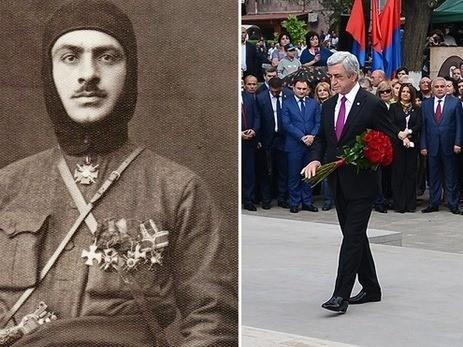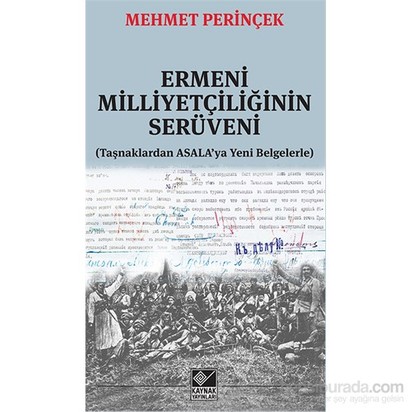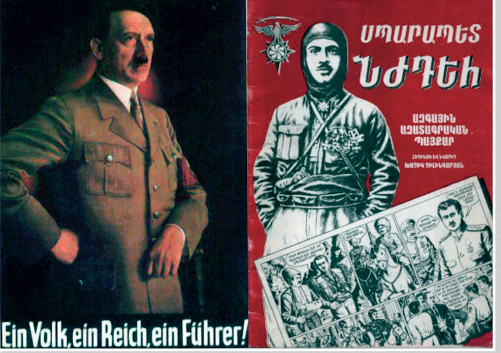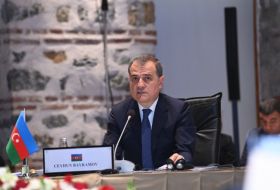The promotion of terrorism around the world is linked to socio-economic aspects rather than to politics solely. In this regard, finance of terrorism not only realizes the exploitative plans of the great powers, but to implement the objective for economic extortion, too.
The psychoanalytic approach clearly distinguishes the sides of terrorism: it is the culmination of crime that promotes terrorism; the innocent who is exposed to a terrorist attack is the victim of the political turmoil, and the accused taking part in terrorism is used as a tool, that is, being at the bottom of filth. Political philosophy also gives an explanation of terrorism by terms of the game theory. Postmodernist philosopher Foucault and other opinion-leader intellectuals argue or claim that the most threatening ideologies majorly rise from high-ranking officials of top management. However, as said by Freud, the consciousness of society is capable of any act. That is, we should have analyzed the spiritual inner world and mindset of those appeared within civilizations and behaved savagely when discussing a change in the traditions of cannibalism which still exists in many tribal lifestyles of non-civilized societies of several remote jungles in Africa. Terrorism is a way to use it as putting pressure on society and on government through creating dread and violence, and thus to achieve a political goal. Terrorism, unlike other concepts that end in ‘ism’ as a term, is not a form of ideology, in fact.
Pashinyan, the incumbent Prime Minister of Armenia – a country systematically carried out terrorist actions against Azerbaijan and Turkey throughout the 20th century, who is proud of his grandfather's fighting experience alongside with the German Nazis, and thus presenting terrorists as the ideals to the public, is not in vain at all. For centuries, terrorism has been one of the main tools of the curriculum in the Armenian education system, in which the genetic specificity of Armenian nationalism takes its form. Until 1933, the Nazis, who considered Armenians as a sub-race, then began to skillfully make good use of their psychology of betrayal. Since the betrayals of the Armenians and their alliance with foreign invaders in the Caucasus and Anatolia until the 1940s have been under the special attention of the Nazis, as a result, more than 100,000 Armenian Nazi legions were formed after 1940.
The ideological basis for cooperation between the Nazis and the Armenians (Dashnaks) began to be launched in the 1930s. First, Goebbels designated the Armenians as “Aryans” in 1933. Alfred Rosenberg, the Reich Minister of the Occupied Eastern Territories who was the head of the Eastern Institute from 1926 to 1936 as well, appointed Artashes Abegyan to form a committee for the study of the anthropology and history of the Armenians. In 1934, Artashes Abegyan and Paul Rohrbach published a book entitled “Aryan Armenians in Cooperation with Nazi Intellectuals”. In this book, it was stated that Armenians and the Armenian language were of Aryan origin. Five months after the establishment of the above-mentioned committee in 1934, Rosenberg presented to Hitler a report stating Armenians were of Aryan descent. Dozens of books have been published about the Armenians in Germany, on their history, race affiliation and on the so-called “Massacre of Armenians in 1915” from that period until the end of the war. “Armenia-Aryan”, the “Olive”, “Historical friendship between Armenians and Germans”, “Aryans look at you”, “Historical role of our volunteers” are some of those books.

On December 30, 1941, the 812th Armenian Legion (8,000 servicemen) and Armenian battalions were established under the command of the bloodthirsty so-called "Butcher of Turks", Dro. The unit expanded over time by reaching a military force of 20,000 and fought together with the Germans against innocent people in Crimea, the North Caucasus, and the Netherlands. In addition, the Armenians who lived in France and Germany joined the 58th Panzer Corps and the 19th Army, the German army's Eastern Legion of Wehrmacht. Thus, the Armenian contingent within the German army gradually accumulated around 100,000. After the war, Dro fled to the United States (with support of the Armenian Diaspora) as feared of being accused as a war criminal, and died there in the aftermath. Today, this bloody killer is being remembered as a national hero in Armenia.
In February 1944, the United Armenian Headquarters has been established by the Rosenberg's order. The organization led by Vartan Sargsyan coordinated the activities of the German armed forces within the Abwehr military intelligence, Wehrmacht and all Armenian military groups and intelligence services. In addition, the Armenians worked closely with Admiral Canaris, the head of German military intelligence. For this purpose, they worked as the agents in the Middle East intelligence network (Kraiegs organization Naher Osten) established in Istanbul. During that period, in a text sent to London on the German intelligence activities, the British ambassador to Ankara said that the Armenians in Turkey had become a true lively source of betrayal (Office of Public Records, Foreign Affairs Document: F.O 371/30031 / R5337).
Four years before the outbreak of World War II, on May 10 and August 9, in 1935, in the articles published on the Armenian daily Hayrenik glorified the massacre of Jews in Thessaloniki committed by Armenians and Greeks, as well as their appearance in Nazi Germany. Later on August 19, 1936, the ‘destruction of cancer’ equated with the massacre of Jews in the Armenian weekly journal ‘Hayrenik’. Similarly, the articles have been praising Adolf Hitler were published on the issues of the same magazine on September 17, 1936. During that period, Armenian youth organizations have been established in Berlin, Munich, as well as in Bucharest and Sofia to operate for the sake of Tseghagron militant groups. At that time, special schools for Armenians were set up in Germany, and the idea of liberating Armenia from the Turks and Russians with support of the Germans has been instilling among the Armenians through the propaganda which had run under the auspices of the Third Reich. In 1942, Germany developed an operation plan called ‘Gertrude’ which was designed as an extortion plan not only against Azerbaijan and Turkey, but also against Georgia at that time by means of the Armenian fascists. The cunning political terroristic plan was postponed after Russia's counterattack on the Caucasus front and the Allies' mobilization of troops in Sicily.
In addition, another useful source which is of worth mentioning, an important book written by Mehmet Perinchek exposes the Armenian-Nazi ties and touches upon the essential facts that are mostly ignored by the international organizations deliberately.

In his book titled “The Adventures of Armenian Nationalism”, Perinchek reveals out entire abhorrent aspects of Armenian fascism with solid documents. In one part of this book, Perinchek wrote about the separatist Dashnak organization, especially the facts about the leading figures of the organization which has been established under Hitler's order. Vachagan Artashesovic Abegyan and Akop Petrovich Azizyan (Aziryan) are some of those personalities, who visited concentration camps and recruited detainees of war from German prisons, as well as have been involved in interrogating prisoners, taking agents and sending spies to the Soviet front. It is also written in the book that Vagan Tatevosovich Hayrapetyan, a police officer of a camp who has been educated, then taught at a propaganda school near Berlin in the Occupied East in March 1943, joined the Dashnaktsutyun Party and worked in Ottoman territory after graduating from school.
P.S. The deep historical roots of Armenian fascism became apparent to the world these days by exposing their hooliganism, unhealthy attitude and conduct.
P.P.S. The question concerning why ethnic minorities no longer inhabit in Armenia is among the topics being discussed in the world media nowadays.
Tural Ismailov, Senior Advisor of the Social Research Center (SRC), politician













































